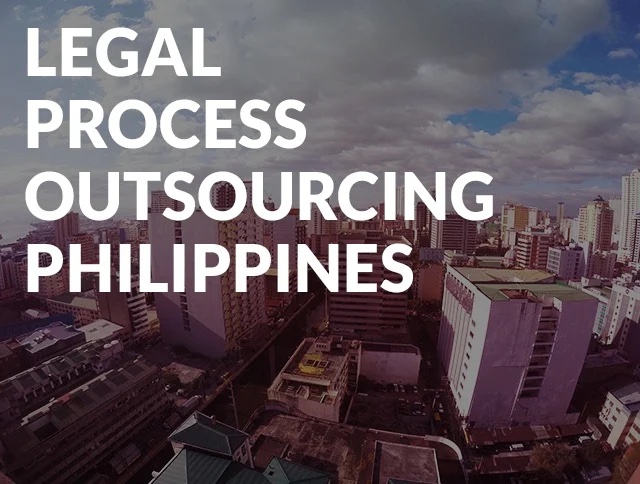

Legal outsourcing, or legal process outsourcing (LPO), involves using an outside firm or legal services company to perform legal work. Often, relatively mundane, simple, repetitive tasks that do not require hard-core legal reasoning skills are the first to be outsourced. More complex legal services such as document review, research, patent review, and e-discovery are also being outsourced more and more to third-party vendors, either within the United States or abroad, where labor rates are much less expensive. One of the top destinations in the world for legal process outsourcing, or LPO, is the Republic of the Philippines.

Hundreds of American law firms outsource data entry to the Philippines. Other services formerly done by Paralegal or Legal Secretaries back home, can also be outsourced to the Philippines. This paperwork might include immigration documents or legal transcriptions. Law firms outsource time-consuming processes to LPOs to streamline productivity and cut costs.
According to reports, LPO is the fastest growing sector in Knowledge Process Outsourcing (KPO) industry. The LPO industry grew by 40-60% worldwide in the last year alone. Global LPO revenues should reach $2.7 billion by 2018. Factors responsible for this immense growth include the availability of high-speed Internet, growth of cloud-based case management systems, the commoditization of legal services, improvements in data security and storage, and greater access to low-cost foreign-born legal talent. In short, it just makes sense for some law firms to offshore legal processes to the Philippines.
Critics of LPOs complain that attorney-client confidentiality is broken when legal work and communication are sent overseas. However, the American Bar Association addressed this in 2008 when it cleared the way for the development of the legal process outsourcing industry.
Litigation support companies in the Philippines allow U.S. legal firms to reduce and control operating costs while gaining access to world-class staff capabilities. They also allow firms to process cases 24/7, around the clock.The Philippines is ripe for excellence in outsourcing, thanks to the inexpensive operating costs and talented labor pool. The culture is friendly to the West and is home to the fifth largest English-speaking population in the world.
The Philippines has also become an attractive LPO destination for U.S. firms because the islands’ large, English speaking, highly educated pool of workers.
The fast pace of technological innovation with respect to communication and collaboration has also played a huge role in the growth of the phenomenon. Today, educated Filipinos with a deep understanding of U.S. law, or specific legal processes, are joining the LPO talent pool daily. In fact, many lawyers in the Philippines have been admitted to the New York Bar, California Bar, or the bar associations of other States.

Legal outsourcing companies in the Philippines are growing fast, scrambling to hire legal talent to keep up with this burgeoning demand. According to research by KPO firm Evaluserve, the LPO industry employed over 5,200 professionals worldwide in early 2010 alone. India and the Philippines led in revenues, with estimated profits of USD $300 million per year. LPO industries are expected to employ over 19,000 people and see annual revenues of USD $960 million by the end of 2015.
U.S. law firms prefer legal outsource agreements with Filipino companies due to their massive labor pool of native English speaking professionals and top of their class graduates. Lawyers and paralegals with specific legal expertise are also joining firms in the U.S., and working virtually. The Philippine legal framework is based primarily on US law. The similarity in culture between the U.S. and the Philippines also allows for groups in both countries to work together seamlessly, with ease.











